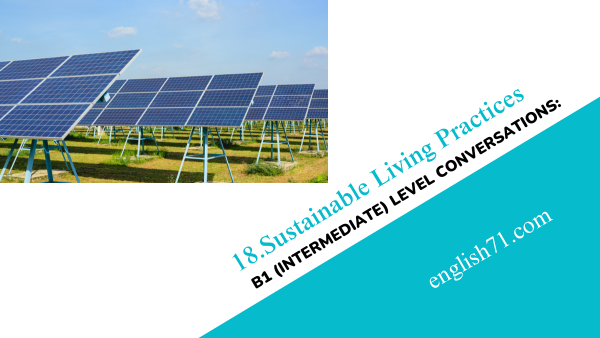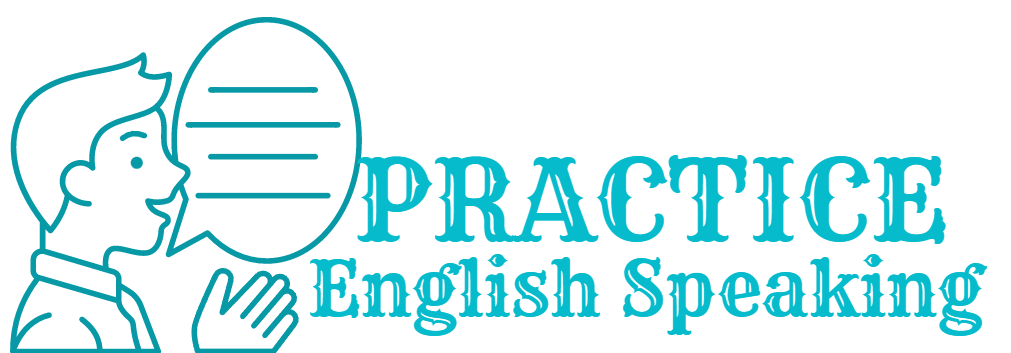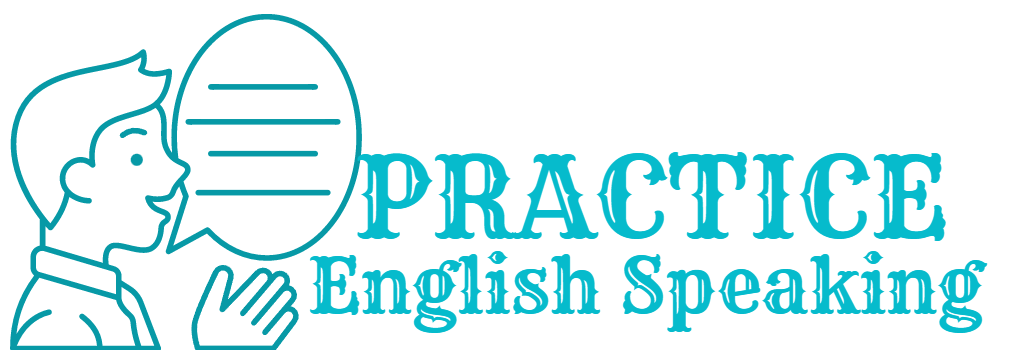B1(Intermediate) level Conversations: (18)Sustainable Living Practices

Akshat: Hi Emily! Have you been exploring sustainable living practices lately?
Emily: Hey Akshat! Absolutely, it’s become a significant focus for me. How about you?
Akshat: Same here. I’ve started with small changes, like reducing single-use plastic. Have you made any specific changes in your lifestyle?
Emily: Yes, I’ve been minimizing water usage, incorporating reusable items, and making conscious choices about the products I buy. It feels like a step towards a greener lifestyle.
Akshat: That’s great! Every small change adds up. I’ve also been looking into energy-efficient solutions. Have you considered renewable energy options?
Emily: Absolutely. I’m looking into solar panels for my home. It’s a long-term investment that aligns with sustainable living. What are your thoughts on sustainable transportation?
Akshat: I’m exploring biking more and using public transport. Sustainable mobility is crucial. Electric vehicles are also catching my eye. Have you made any changes in how you commute?
Emily: I’ve started carpooling and using public transport when possible. It’s about making mindful choices. Food choices play a role too. Have you considered a plant-based diet?
Akshat: Yes, I’ve been gradually incorporating more plant-based meals. It’s a healthier choice and reduces the environmental impact. How about you?
Emily: I’m on the same journey. Meatless Mondays and exploring plant-based recipes have become a regular thing. Waste reduction is another aspect. Have you delved into composting?
Akshat: I’ve started composting kitchen waste. It’s surprising how much can be diverted from landfills. It’s all about rethinking waste. Do you have any tips for reducing waste?
Emily: I’ve been mindful of packaging, opting for products with minimal or eco-friendly packaging. Also, buying in bulk reduces unnecessary packaging. How about water conservation?
Akshat: I’ve installed water-saving fixtures and try to be mindful of water usage. Small changes like turning off the tap while brushing make a difference. Any tips from your end?
Emily: Collecting rainwater for plants and using a low-flow showerhead have helped. It’s about finding sustainable alternatives in daily life. Clothing choices matter too. Have you explored sustainable fashion?
Akshat: Absolutely. Buying second-hand and supporting sustainable brands are ways to promote ethical fashion. It’s about quality over quantity. How do you approach sustainable fashion?
Emily: I’ve embraced thrift shopping and try to choose timeless pieces. It’s a shift from fast fashion. Education and awareness play a crucial role. Have you been sharing sustainable practices with others?
Akshat: I’ve been discussing it with friends and family, emphasizing the collective impact of our choices. It’s inspiring when others join in. How about you?
Emily: I’ve hosted a few workshops on sustainable living in my community. It’s essential to spread awareness. Every action counts. Well, Akshat, it’s been enlightening discussing sustainable living with you.
Akshat: Likewise, Emily! Let’s keep inspiring each other on this journey towards a more sustainable lifestyle. If you find any interesting practices, do share!
Emily: Absolutely, Akshat! Let’s continue making a positive impact.



Summary:
In their conversation, Akshat and Emily share their commitment to sustainable living practices. Both have taken small steps, such as reducing single-use plastic and minimizing water usage. They discuss energy-efficient solutions, with Akshat exploring solar panels, and Emily considering a plant-based diet for its health benefits and reduced environmental impact. Sustainable transportation is also a focus, with Akshat opting for biking and public transport. They delve into waste reduction strategies like composting and mindful packaging choices. Water conservation measures, including rainwater collection, are part of their efforts. The duo also touches on sustainable fashion, advocating for second-hand purchases and supporting ethical brands. Both emphasize the importance of education and awareness, sharing their practices with friends and communities to make a collective impact. The conversation reflects their shared commitment to making mindful choices in daily life for a greener, more sustainable future.

